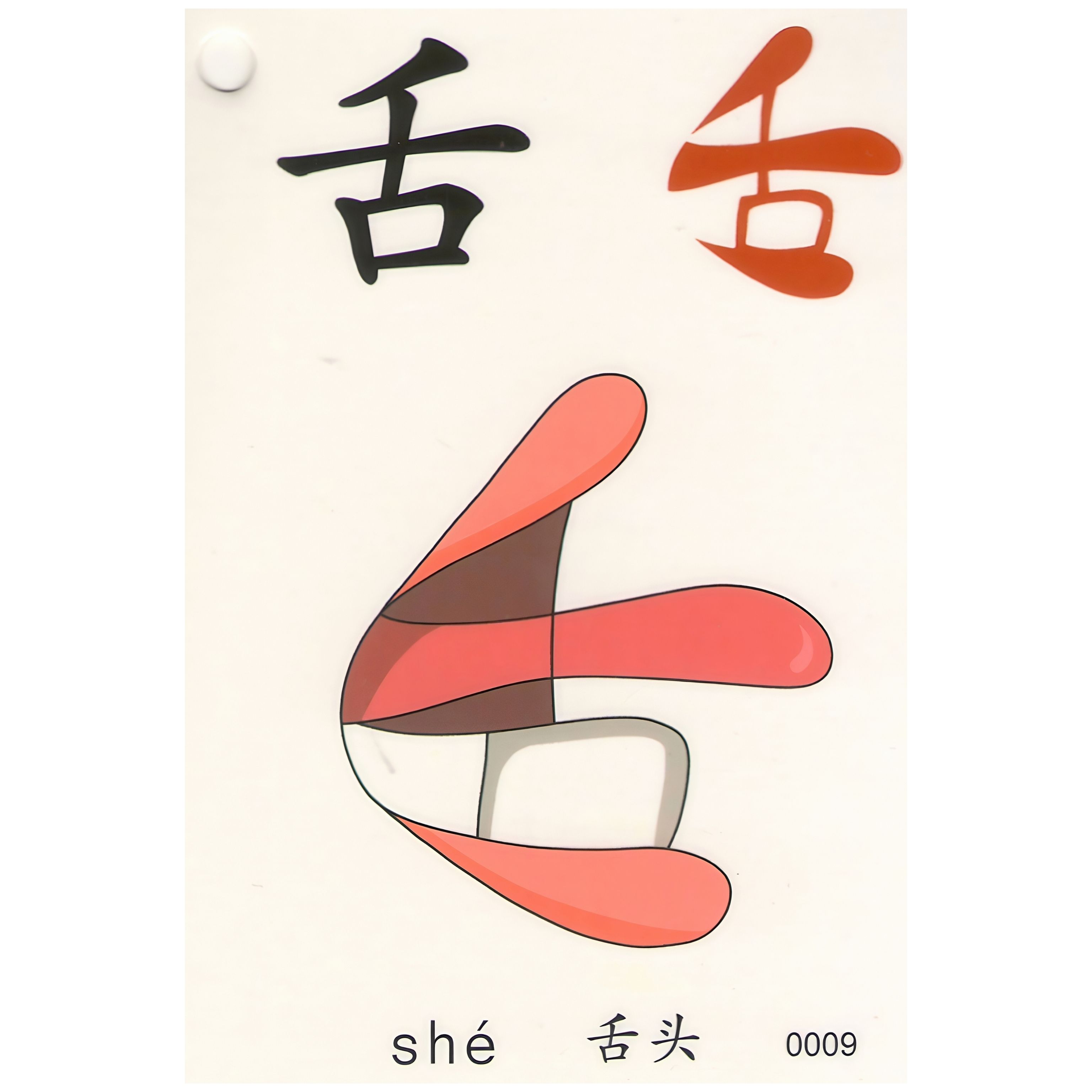
舌
คำอธิบาย
The character "舌" is composed of the radical "舌" (tongue) itself. It is a pictographic character, resembling a tongue extending from a mouth.
Meaning (字义)
The character "舌" primarily means "tongue." It can also extend to meanings related to speech and taste.
Usage (用法)
"舌" is commonly used in words and phrases related to the tongue, speech, or taste.
Example Words (例词)
1.舌头 (shé tou) - tongue
他咬了自己的舌头。 (Tā yǎo le zìjǐ de shé tou.)
He bit his tongue.
2.口舌 (kǒu shé) - quarrel, dispute (literally "mouth and tongue")
他们之间有很多口舌。 (Tāmen zhījiān yǒu hěnduō kǒu shé.)
There are many quarrels between them.
3.舌尖 (shé jiān) - tip of the tongue
舌尖尝味道。 (Shé jiān cháng wèidào.)
The tip of the tongue tastes flavors.
Example Sentences (例句)
他用舌头舔冰淇淋。 (Tā yòng shé tou tiǎn bīngqílín.)
He licks the ice cream with his tongue.
她的舌头很灵活。 (Tā de shé tou hěn línghuó.)
Her tongue is very flexible.
用舌头说话。 (Yòng shé tou shuō huà.)
Speak with the tongue.
Summary
The character "舌" is related to the tongue and its functions, including tasting and speaking. Its usage is straightforward and can be found in common expressions and daily language.
Four-Character Idiom (四字成语)
成语: 舌战群儒 (shé zhàn qún rú)
Meaning (意义)
"舌战群儒" literally means "to battle a group of Confucian scholars with one's tongue." It refers to using eloquent speech to argue and defeat a group of scholars or debaters.
Usage (用法)
This idiom is used to describe a situation where someone wins an argument or debate against multiple opponents through the power of speech.
Example Sentence (例句)
在辩论会上,他舌战群儒,赢得了观众的掌声。 (Zài biànlùn huì shàng, tā shé zhàn qún rú, yíngdé le guānzhòng de zhǎngshēng.)
At the debate competition, he eloquently argued against a group of scholars and won the audience's applause.
ช่องพอดคาสต์
每日一字
ผู้แต่ง
ทั้งหมดทุกตอน

A turkish verb that have more than one meaning : çalmak

Hobbies

Despertarse con el vuelo de una mosca

Episode 15:旅の楽しみ方

Lesson 2 word 2 ( Conceal )

Episode #74 - Spring is coming! Common & Different points

5 dicas para explorar a cultura brasileira

海外で活躍する若者を応援したい A Japanese university student blamed on Twitter about staying in Ukraine.
ตอนยอดนิยม

Turkish Vocabulary
A turkish verb that have more than one meaning : çalmak

Dale Play al Español
Hobbies

Expresiones en español
Despertarse con el vuelo de una mosca

アヤさんとフミさんの日本語雑談(Aya and Fumi’s Japanese Chit-Chat)
Episode 15:旅の楽しみ方

Engsavvy ( 504 Absolutely Essential Words )
Lesson 2 word 2 ( Conceal )

Slow Japanese
Episode #74 - Spring is coming! Common & Different points

Portuguese Drops
5 dicas para explorar a cultura brasileira

Akari Talks Japan
海外で活躍する若者を応援したい A Japanese university student blamed on Twitter about staying in Ukraine.